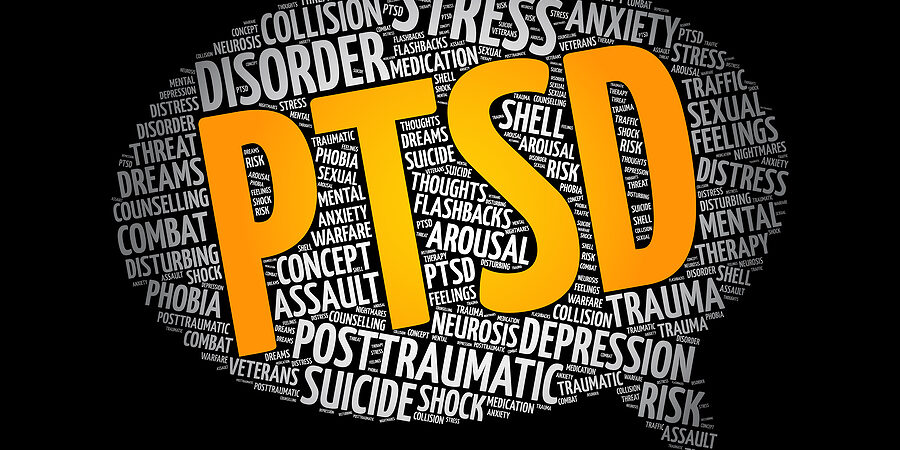Around 9% of the entire population will face PTSD. Whether you wonder, “What is PTSD?” after experiencing a traumatic event or question, “What does PTSD mean?” it’s crucial to understand the effects of this illness.
PTSD stands for post-traumatic stress disorder and is an anxiety-related mental health disorder commonly occurring in individuals after they witness a traumatic event.
At Dr. Quintal & Associates, we have years of experience treating patients with post-traumatic stress disorder. Whether you’re a veteran or have survived domestic violence, our team has the knowledge and skill to provide you with the tools you need to manage PTSD. We’ll discuss your situation and develop the perfect treatment plan.
Causes of PTSD
PTSD has many causes, including war, natural disasters, sexual abuse, physical or emotional domestic violence, vehicular accidents, and other traumatic experiences. Not everyone develops PTSD after experiencing a traumatic event—some individuals never develop the condition, while others show PTSD signs immediately.
You don’t necessarily have to be the victim of a traumatic event to develop PTSD. Individuals that witness traumatic events or hear about loved ones enduring a trauma can also develop the disorder.
PTSD Symptoms
PTSD means patients may deal with many different symptoms. Memories of the event, negative thoughts, heightened emotional and physical reactions, and avoiding triggers are common aspects of the disorder.
In some cases, PTSD worsens with time, stress, and interaction with triggers. It can also result in suicidal ideation. It’s best to speak with a medical professional if your symptoms worsen or you struggle with thoughts of harming yourself or others.
Acute stress disorder is a mild form of PTSD that may lead to post-traumatic stress disorder later. Some patients may develop complex PTSD (CTPSD) after traumatic events have occurred over an extensive period.
Flashbacks
A significant characteristic regarding “What is PTSD?” is the memory of the event. Some individuals may block out the trauma, while others get frequent flashbacks as if they are reliving it. Many individuals also have nightmares of the event or get intrusive thoughts.
Avoidance
It’s common for many people with PTSD to avoid going back to where the trauma occurred, discussing it, or associating with people who remind them of the event. Staying inside to avoid triggers is also typical. For example, a war veteran may get anxious during fireworks as they sound similar to combat explosives and therefore avoid celebrating the Fourth of July.
Increased Reactivity
People with PTSD also have heightened nervous system arousal. They may be hypervigilant in public, have problems sleeping or focusing, be easily frightened, or display aggression. Children with PTSD may enact trauma with their toys or have nightmares.
Changes in Thinking
People with PTSD undergo negative changes in thinking after suffering a traumatic event. They may feel hopeless, numb, or detached. Some blame themselves or are unable to feel happiness.
Many individuals no longer find interest in previously-loved hobbies, while others may withdraw from friends and family. These negative thinking patterns may result in harmful coping mechanisms other than avoidance.
Getting a PTSD Diagnosis
To determine whether you have PTSD, a mental health specialist will perform a psychological evaluation and diagnose you according to the DSM-5 (Diagnostic and Statistical Manual of Mental Disorders).
Medical professionals, veterans, and first responders are among the most common individuals to receive a PTSD diagnosis, as they are likely to witness horrific injuries or severe violence in their daily life. Women and racial minorities also make up a large number of people with PTSD.
Treatment For PTSD
While the definition of PTSD means the condition is incurable, symptoms are manageable. Treatment options include talk therapy and medication.
Psychotherapy allows you to discuss traumatic events and gain healthy coping skills to use when symptoms manifest. Cognitive behavioral therapy, eye movement desensitization and reprocessing (EMDR), and exposure therapy are some of the top options.
Medications, including antidepressants and those for anxiety, may reduce negative thinking and heightened arousal symptoms. Some options may also be available for decreasing PTSD nightmares.
Get Help For PTSD
If you or a loved one has PTSD, it’s important to get mental health help fast to mitigate a traumatic event’s effects and cope with lingering symptoms. No matter the severity of the event, indicators of PTSD are manageable with the proper treatment.
At Dr. Quintal & Associates in Lakewood Ranch, FL, we have an extensive selection of therapists experienced with treating post-traumatic stress disorder. For more information on “What is PTSD?” speak with our friendly professionals today at 1 (941) 907-0525.







